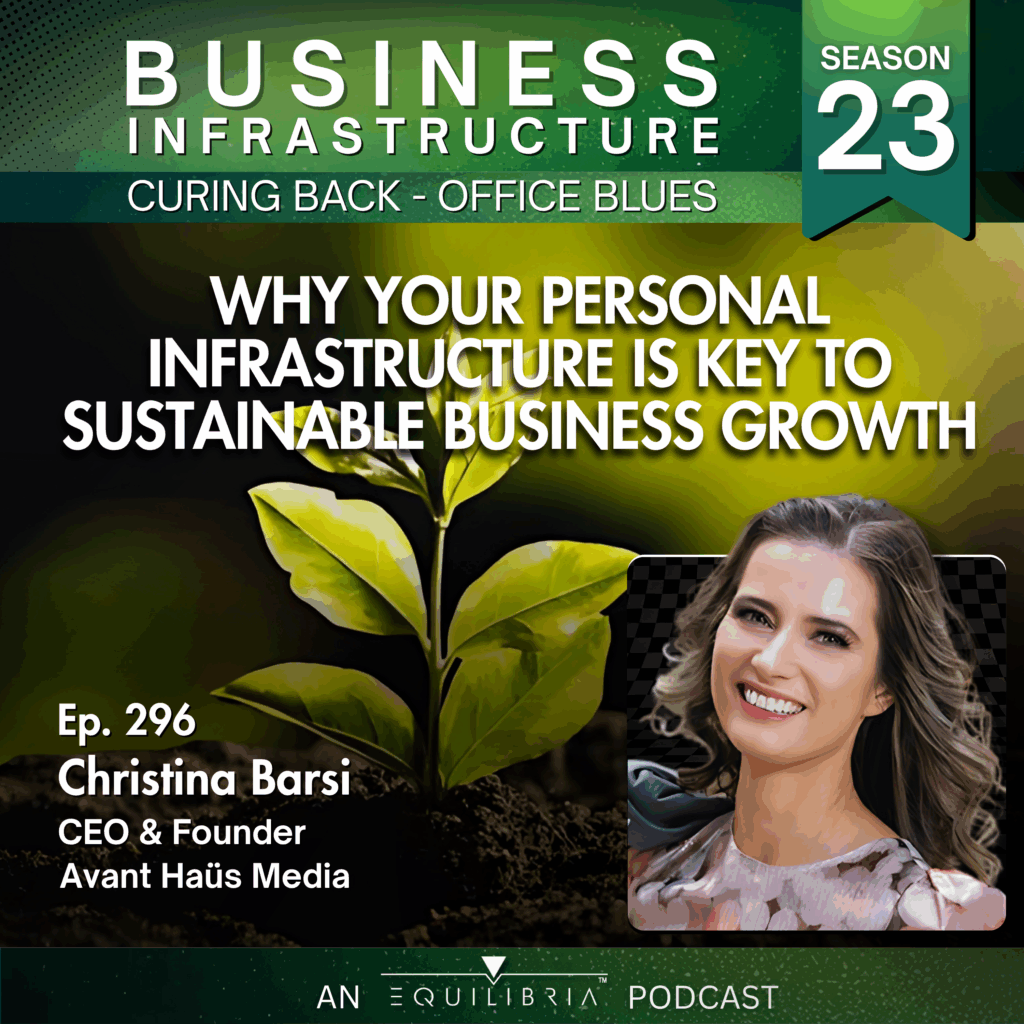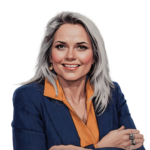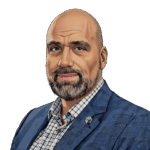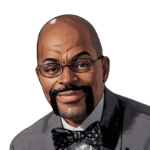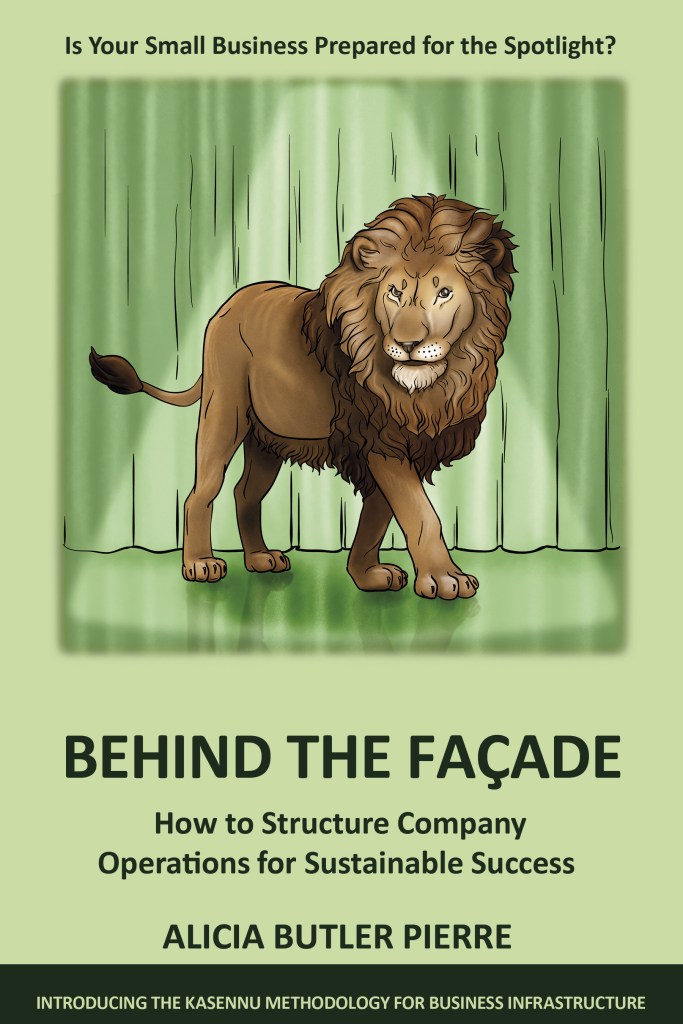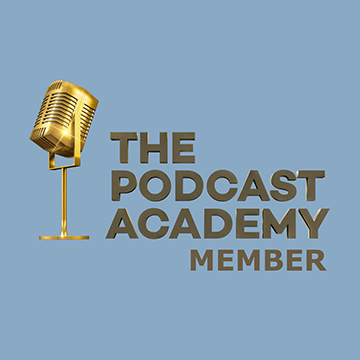Transcript
Welcome back to Season 23 of the Business Infrastructure Podcast – the show where we share operational tips, tactics, and strategies to help you cure any back-office blues you might be experiencing.

I’m Alicia Butler Pierre and it’s been quite an amazing journey we’ve been on together during this growth strategies masterclass. In case you missed it, so far in the masterclass, we’ve had guests share their expertise on the following:
- Vetting and validating growth ideas,
- Creating a strategic growth plan that includes validated ideas,
- Developing project plans to implement your company’s growth strategy,
- Growing your business through strategic partnerships, and
- Structuring your business so it that relies less on you so that you can sell it at maximum
value.
There’s an old Yiddish adage that says, “Man plans. God laughs.” It’s possible that even after all the growth strategies we’ve talked about so far, your plan for still may not work and that could be for a number of reasons. One of those reasons could be that your personal values simply aren’t in alignment with the direction you’re thinking of taking your business in.
This is Ep. 296: Christina Barsi Explains Why Your Personal Infrastructure is Key to Sustainable Business Growth
I’m so excited about our guest today as well as today’s topic. It’s funny because as integral as she’s been in my podcasting journey, this is her first time on the show! And that’s wild considering that her dad has actually been on the show! But trust me, she’s done so much to help me behind the scenes over the past few years. Just so you won’t
be alarmed, yes, her name is Christina Barsi, but she prefers to be called by her surname or last name – Barsi. So…without further ado, Barsi! Welcome to the show!
Hi, Alicia. Finally. Just kidding.
No, that’s true. Finally. We’ve been trying. We’ve known each other, gosh, for what, maybe four or five years now?
That sounds about right.
And it was during a conversation we had about your recent trip to Kenya, which included a safari, that we started talking about personal infrastructure. But before we get into that, you are making serious inroads in the podcasting industry – an industry that is male-dominated. But I know that you spent about 19 years in the hospitality industry before making your career transition to podcasting. Can you share that story because I think it provides great context for our discussion on personal infrastructure?

Oh, boy. Well, I’ll try to not spend an enormous amount of time because that’s a lot of years of journey. To me, those 19 years were not, I wasn’t looking at it as industry, sort of an industry profession that I had chosen. It was a day job to me. I was an actor. And
what people who decide they’re going to be an actor in Los Angeles do is they get a restaurant day job. And I did that. I went to college for theater. So, theater led me to moving to LA to pursue acting and then you kind of stay in those part time jobs so that you, in theory, have your days freed up to go to auditions.
But the timeframes never really work out that way, so it ends up being this sort of impossible feat. And to me, was very stressful because you really do have to choose. You either have to be a terrible employee because you’re going to show up late, or you’re
not going to show up at all because you go an audition at 3:00 p.m. instead of 11:00 a.m. and you can’t do both in the same day in that situation. So I had a really hard time juggling the two lifestyles and one lifestyle being supporting myself, the other one being the reason I was in LA in the first place, and wanting to sort of live a dream that I was very passionate about.
Quickly that passion turned into confusion because what happened was everyone’s telling you who you are, and you don’t really get to self-identify very much, or at least I didn’t. And the identity they created for me was one I didn’t identify with. It was very sex object girl, and the additions I was going out for felt very incongruent with who I was and who I wanted to be and the reason I wanted to act, and just felt inauthentic to me. And I basically came to a point where I had enough of that, and it was kind of earth shattering.
It was crushing to give up on something that I really wanted and that I was very good at and had a lot of passion for and start to reevaluate what kind of creative person I was and what kind of things I really wanted out of life and ask myself the questions of who
am I and what do I really want? And that’s where my journey really started into audio, because my first thought was to start writing because I was like, Well, what does a role even look like that I want to play?
That felt really cathartic. And then I had an opportunity to create the script I was writing pretty quickly. Someone was doing audio streaming. They were streaming stories after hours in this record store in town. And he was one of my bar regulars when I was
bartending. And he said they were tired of reading stories that were already written and they were looking for original work to kind of do what turned into an audio drama. And I was like, I could do that! I could turn my story into an audio drama. Sure! So can I come
do that with you?

And he was like, “Sure, I guess, whatever.” He didn’t really care. And I was like, All right. But it meant everything to me to be able to do something that I had written, and I worked my way into his world. And then we were off and running, and my first audio drama was born, and so many people were so excited to come play the parts that were part of the show.
And that show turned out to be a Sci-Fi Noir show that you did for two years. This audio drama experience basically led you to podcasting and along the way, you also became a certified creative coach. Barsi, I’m sure this all must have felt so freeing – to do something you love on your terms and get paid for it!
No one was telling me what to do, and I just fell in love. I fell in love with the freedom of it all. Both of those things were kind of just coming into the forefront for being in the media. And from there, I wanted to create more. The show ended, but I didn’t want the
experience to end. So I produced a short film documentary about the process of making that show. I wanted everyone to know about this amazing new medium that gave creators so much freedom.
So I made a movie about it and we toured with some film festivals in 2017. And I had the time of my life doing that and being able to show everyone, how much fun we had and what they could do with their creativity as well, and particularly filmmakers, because
it’s so expensive to make a movie. And from there, we got to do live performance. Then I started a production company. So that’s the long and short of it. The planning was very organic, and I just truly followed my heart.
And at that festival where I did that live performance, there was a manager of talent speaking, and he worked with digital talent. I introduced myself as a podcast producer, which I was not yet, and he said, “Okay”, and then walked away. And then later that
night, he saw me and was like, “I’ve been thinking about what you said all day. We need to talk”. And I was like, “Great! let’s do it.” We went to a bar and I told him the truth. And he actually got really inspired by my story and wanted to help me launch my business.
So he gave me my first client.
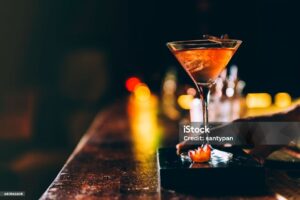
For those of you listening, see, I told you Barsi’s story is a great one! As the saying goes, “Fortune Favors the Bold!” What I heard Barsi is a story of introspection and intentionality. From a time frame perspective, I know you’ve told me before that your identity crisis happened in 2011 and by 2013 you launched your first podcast episode!
And, for the record, you really are a podcast producer now! Speaking of intentionality and your company’s history of organic growth, how do you and your team approach strategic growth planning, especially as a creative?
Before I jump into that, I want to touch on something you shared, because I think the word intentionality gets misconstrued sometimes. Intentionality is just clarity. Having clarity and understanding how you’re going to intentionally set out to…fill in the blank. And organically, experiencing life does not remove your sense of clarity. And doing things intuitively, to me, actually taps you in to a collective consciousness that allows you to have more clarity on more than just yourself and the things that you’re reading.
So what happens is we don’t have to look at data constantly because we’re tapped in. So there’s something there that allows you to see what’s going to happen before it occurs, because you’ve spent time being intentional with yourself, and those things trickle and ray out into everything else that you touch. So to me, that’s hyper intentional and does not mean it’s any less strategic than sitting down and drawing it out in a way that has a template to it,
Those strategy moments when we’re sitting down and figuring out what we’re going to do, what the action plan is going to be, that’s like step three, four, five. It doesn’t mean it’s not part of it, it just means it’s not where it starts for me, and it’s not what drives the
ship. I think that’s actually what’s broken about a lot of things that we do in life.
We’re missing those steps, we’re missing the foundational parts that help us create less mistakes, often because we’ve already tapped in and we’ve done that foundational question, asking and checking in and really understanding what it is that we want to bring into the world and how things feel. I could have kept trying and trying to be an actor because I didn’t want to give up on my dream and creating and trying all the strategies that everyone’s always telling you what to do, but it did not feel correct to me because there was something bigger and better for me to explore.

Thank you, Barsi, for explaining intentionality. I especially appreciate the fact that you didn’t discredit the importance of strategic growth planning while you emphasized that you have to go inward first and focus on what type of work will personally bring you satisfaction. Let’s be honest – entrepreneurship often means long hours and so if you’re doing something that doesn’t fulfill you, you will be miserable. So that introspection, or as you call it “personal infrastructure,” is really the starting point in your business growth planning. Can you explain what personal infrastructure is and why it’s our true north star?
So, at the end of the day, we’re human first. We’re human before we’re anything else that we do. I have a podcast as well, and it was a lot of my guests that helped shift my understanding of where I spend my time and how I’m approaching my own life and my business and this particular space we’re in right now. So, you can take that same process and apply that to yourself. The first relationship, and maybe the most important relationship you’ll ever develop in life is the one you have with yourself. And we often don’t take the time to pull all those layers back because it’s usually kind of painful, to be honest with you. Not everyone wants to go on that journey.
But one of the reasons I wanted to become an entrepreneur was because I was tired of living life in a mediocre note. I wanted to experience the fullness of life. I wanted to feel the fear. I wanted to be pushed to my edges. I wanted to know what I was capable of. I
wanted to fall on my face, I wanted to fail. I wanted to see what that part of myself looks like. And I knew it was going to be hard, and I knew I didn’t have any reason to do it. And that’s the beauty of what I want people to understand, is that you get to decide.
You get to decide how it goes, you get to decide how you want to feel, and you get to decide what you’re going to do about it. And the work starts with you, because that’s a mindset thing. that’s where all the action comes from. So the action and the strategy and the things that you decide to do from there. If you’re not checking in with yourself first or figuring out what’s going to be the direction to move in, then you’re not inputting the correct data.
We’re pulling data from someone else’s experiences. That’s what data is. External data. What about the internal data? You are a wealth of wisdom. All of us are, and we’re all pretty unique. how I approach my business, it’s going to be a little different than the
way you do. And how it feels to me is going to feel a little different to you, because that’s how everything operates. Calibrating that so that we have the best outcome that makes sense for us is the key to that personal infrastructure.
We have to get comfortable with turning up the volume on our own intuitive voice and lowering the volume a little bit on all of the outside layers that we’ve been carrying. Also, there are things that are layered onto us since we’re very, very small, from our families and our environments, and we just continue adding and adding those layers. And the layers are harder to differentiate between our voice and the rest of the world’s. So really getting quiet at times. It doesn’t need to take a lot of time, but it needs to start. And it’s just hearing how you talk to yourself.
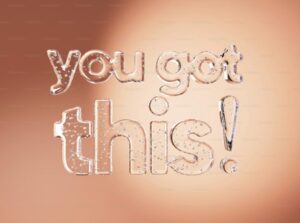
What are you saying? Are you beating yourself up a lot? And then forgiving yourself for that and changing the verbiage. And this sounds ridiculous, but so many of us do that. It is an epidemic. So many of us talk total crap to ourselves in our brains when we’re just
going about our day. So just observe and then journal at the end of the day.
We know when it’s time to try something different, but we have to get intimate with ourselves in order to know, and we have to be tapped in enough to the rest of the world to know if our pivot is going to make sense. And then we try it, and then maybe we have
to pivot again, right? Because it’s being received differently than we anticipated. Because we can’t know everything.
That’s where the doing happens, and that’s where they start putting in the data and the strategy, and that’s where that step goes. But a lot of us skip all of the first five or six steps, and then we wonder why we keep hitting the wall, or why doesn’t it feel good, or why we’re burnt out, or success doesn’t feel fulfilling, or there’s all of these things that we’re like, This sucks! I got what I wanted. Making all the money. Maybe I’m not. It depends, but something’s off. The way you start to calibrate that is to start asking yourself what it is that you really want to experience, and then you start adding in action steps so that the how can unfold.
This is really interesting to me, Barsi, for several reasons. The main one is this idea of internal data vs. external data. I’ve never heard it explained that way before, but you’re right – so many of the decisions we make about growth strategies for our business comes from external data. But it’s our mindset, the personal experiences we want to have as the leaders of our businesses, the “internal data,” that we should start with as a foundation for our business growth strategy. Then you validate with the external data. Is that right?
Yeah. And the external data you’re talking about validating is if you think about that more at that stage as inspiration, then you can start to connect from a place that you can decide if it’s for you or not. Does this inspire me? Does the data around this feel good, or does it just feel like nothing? Is it neutral or is it just sound like a good idea? I do this all the time. I get in my cognitive brain way too much constantly, so I have to work on this. That’s why I’m so adamant about it, is because it’s not always super easy. It’s something
you have to be really intentional about.
Barsi, like our other expert guests this season you also have a tool that we can use to build our personal infrastructure. It’s called the Circle of Ease. Can you explain what it is?
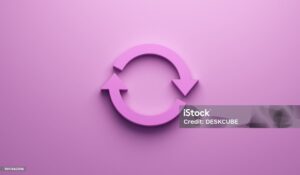
It’s a circle and it’s a cycle. You’re never quite done with this process. You go out, you do some things, then you come back and you ask yourself, how did that go? How did that feel? Am I happy with that? What went wrong? What category does this fall into?
It’s an ongoing conversation you’re having with yourself all the time, because nothing is really quite linear in life. As much as we want to think it is. It’s not. It’s never going to be. But that doesn’t mean you don’t have frameworks and steps to take and ways to kind of
move forward. You absolutely want to do that, but you want to do that in ways that feel aligned. The foundational work. I think the whole process always comes back to you. But starting there is a good place to start.
A good place to start indeed, and Barsi’s going to share with us exactly how to use her Circle of Ease tool for building personal infrastructure in the next episode.
I know, I know, yes, we’re keeping you in suspense! I promise it will be worth the wait! For now, please, make sure you come back wherever you’re listening to this episode so that you can hear part 2 of this interview. I’ll also share with you personal revelations I’ve had as a result of back-tracking to focus on my personal infrastructure.
If you want to learn more about Barsi, her podcast production company Avant Haus, as well as her programs for women entrepreneurs, then go to BusinessInfrastructure.TV. There we’ll have links to that information. Again, that’s BusinessInfrastructure.TV.
If you enjoyed this episode, then please subscribe, give us a five-star rating, and please leave us a review.

Don’t forget to come back to learn how your personal infrastructure governs your business infrastructure. Until then, remember to stay focused and be encouraged. This entrepreneurial journey is a marathon and not a sprint. This podcast episode was written and produced by me, Alicia Butler Pierre. Audio editing by Olanrewaju Adeyemo.
Original score and sound design by Sabor! Music Enterprises. Video editing by Gladiola Films. A special thank you to our sponsor, Equilibria Inc., and to Grant Revilla for creating the show notes.
This is the Business Infrastructure – Curing Back-Office Blues podcast.


